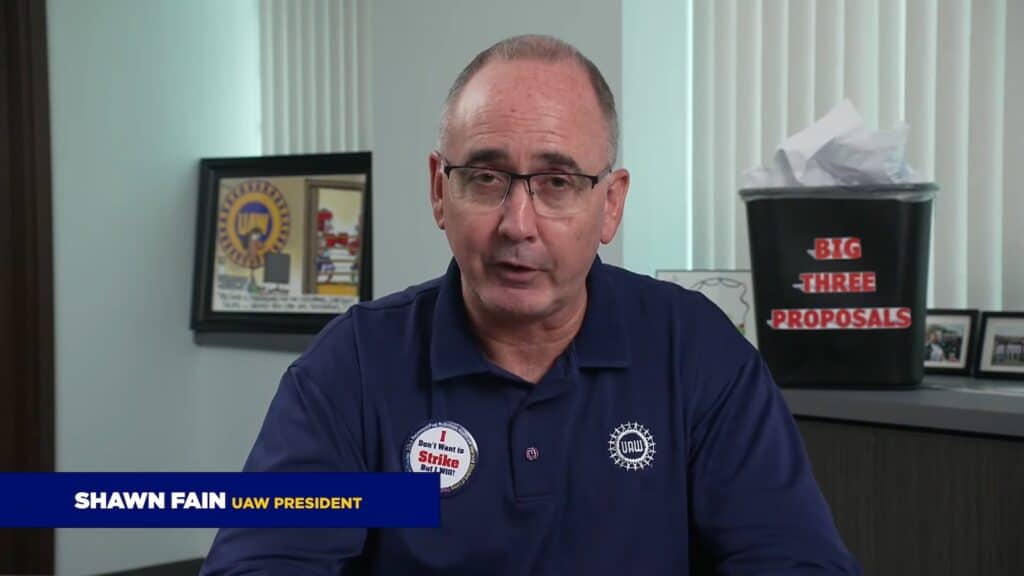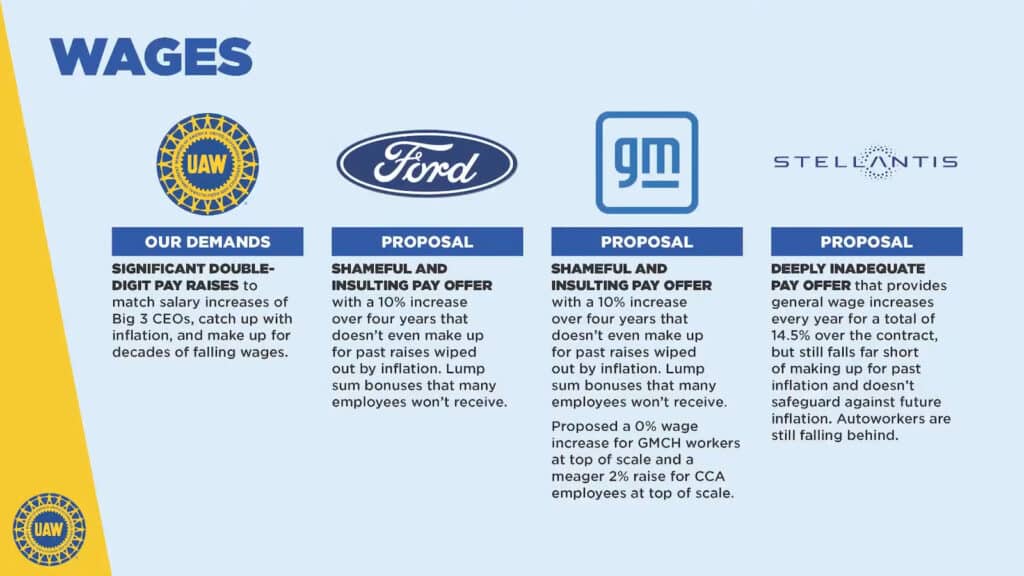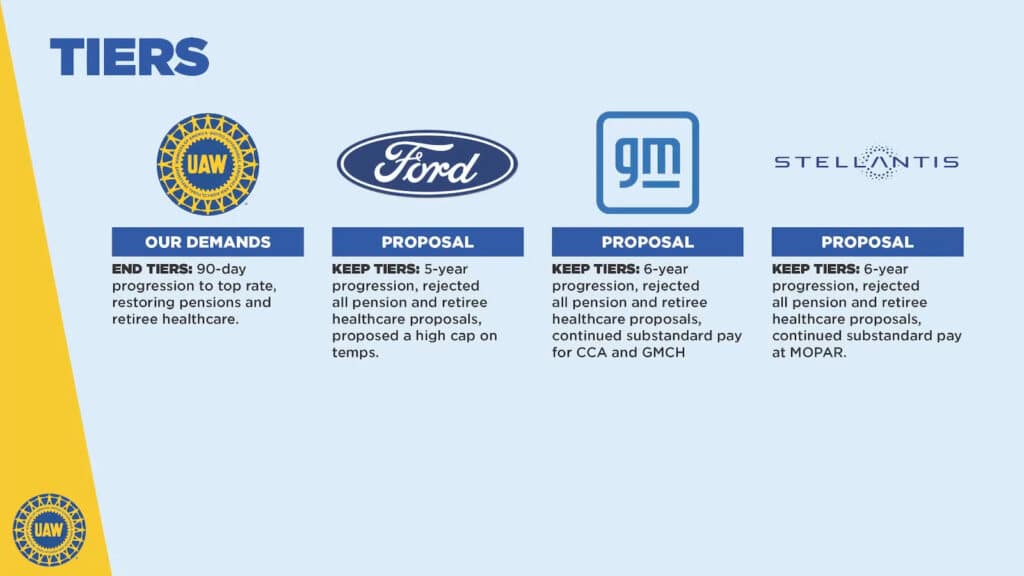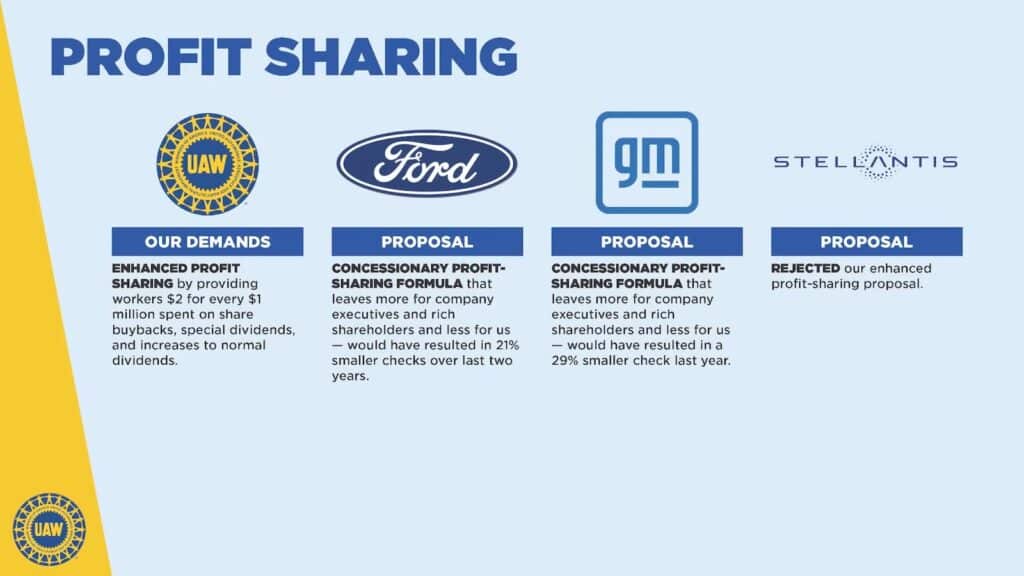All three of Detroit’s automakers are now the union’s target.

UAW President Shawn Fain said during a Facebook live appearance the union will strike any company that does not have a tentative settlement in place on Sept. 14 at 11:59 p.m. The union is prepared to strike General Motors, Ford and Stellantis at the same time without tentative agreements, Fain said for the first time.
It was the most explicit threat against all three companies Fain has issued during his very public campaign on behalf of the union’s demands, which include a 46% pay increase, the complete elimination of the tiered wage structures now in place at all three companies, a 32-hour work week, restoration of cost-of-living adjustments and defined benefit pension plans for workers hired after 2007.
More than half of the 150,000 hourly workers represented by the UAW, GM, and Ford no longer quality for pensions, according to the union.
More demands

The UAW also is campaigning to end the use of temporary workers. The UAW is proposing temps become full-time employees after 90 days, according to Fain.
Any move to strike all three automakers or even two of them at the same time would be a first for the UAW since it began bargaining with Detroit’s automakers in the 1930s. Traditionally, the UAW would target one of the Big Three and make it the focus of the negotiations.
Fain and his advisers appear to have concluded the old system was no longer capable of producing a contract that would represent substantial improvements for an automotive workforce that is younger and less economically secure than the employees the union represented in the 1990s.
With the negotiations settling into an intense phase, Ford has offered a 9% pay increase plus lump payments, GM has offered a 10% pay increase and cash payments, while Stellantis has offered a 14.5% pay increase.

All three companies noted the offers included substantial gains for their hourly employees. GM said it was the largest pay increase the company has offered since 1999.
“From the start of these negotiations, we have said we’re committed to fairly rewarding you for your hard work and contributions to the success of the Company,” Mark Stewart, Stellantis chief operating officer said in a statement.
Rejections continue
During his Facebook live appearance, Fain said the proposals of all three companies fell far short of the union demands. Besides not offering the wage increase sought by the union, they also did not include the elimination of the tiered wage structures — a top union demand — cost of living adjustments, or any of the other mandates sought by the union.
Fain also he challenged assertions the union’s demands would lead to higher prices for vehicles. However, he reiterated the union does not want a strike, adding he expected more proposals from all three companies this week.

Company and union bargainers at each of three companies also face unique issues. At GM, for example, the union wants a large pay increase for workers at GM Holding Company plants where the pay of employees was frozen during the Delphi bankruptcy in 2005. The issue is critical for Fain, who received broad support from Holding Company plants during his campaign for the union presidency.
At Ford, the UAW wants guarantees they will represent workers at the electric vehicle and battery factory complex, the automaker is building outside of Memphis, Tennessee. Non-union EV plants would undermine the UAW at Ford. A mere pledge of neutrality by the company, probably will not satisfy the union since any move to unionize Memphis plants is certain to encounter fierce opposition from Tennessee’s conservative political establishment.
At Stellantis, the union is challenging the widespread use of temporary workers, and the union’s place at new battery plants now under construction.







